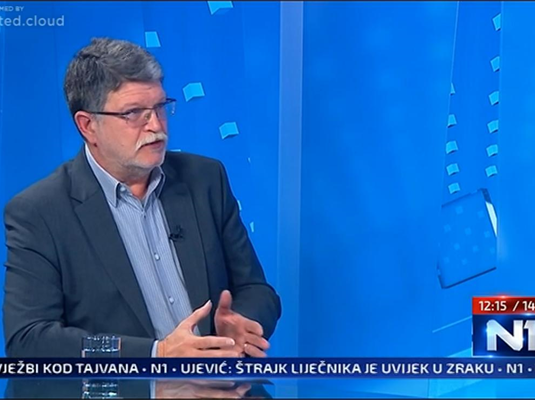After the visit of the S&D delegation to Indonesia and Vietnam, Picula said that these countries are part of ASEAN with which the EU is developing a strategic partnership. Just by mentioning these countries, it is impossible not to think of China and the influence it has built there.
"China is a phenomenon, it has developed a network that spreads its interest around the world. While the West projects 'soft power', China uses 'hard power'. It comes with engineers and credits backed by political ambitions. It no longer wants to follow globalization, but rather tries to shape it," asserted Picula.
Picula also said that the war in Ukraine served as another medium through which Beijing can project its foreign policy influence. "They want to show that only they can influence the beginning of negotiations between Russia and Ukraine. They let Vladimir Putin know that there are limits in Ukraine," he explained.
Picula also said that the USA wants to match China, but he pointed out that in the last 15 years, the West has missed a handful of opportunities to participate in the construction of states that were their colonies, and which they devastated.
"One of the reasons for the success of the Russian narrative is that it was never a colonial power. "Talking with people from Asia and Africa, I got the impression that Russian soft power is a more powerful weapon than their military force," explained Picula.
"For many years now, no matter how much we keep quiet about it, the EU's common foreign and security policy is by far its weakest link. Emmanuel Macron proved it during his last trip to China. He wanted to influence the separation of China and Russia, and he achieved additional stratification within the EU itself," he added.
Picula, otherwise the rapporteur of the European Parliament for Montenegro, also commented on the results of the presidential elections in that country. "The election of Jakov Milatović is a strong indication of the citizens' great desire for change. But it should be said that his predecessor, Milo Đukanović, tied the course of the country to Euro-Atlantic integration, and Montenegro was the leader of such expansion in the Western Balkans," he explained. He warned that despite Milatović's party claiming that it wants to continue such policies, a coalition with a party like the Democratic Front, "gives us a reason to carefully monitor what will actually happen there."
Picula also said that he believes that Russia does not have the strength to threaten peace in the Western Balkans and that the agreement on Kosovo from Brussels, although of great importance, will not be enough to normalize relations between Belgrade and Pristina.


